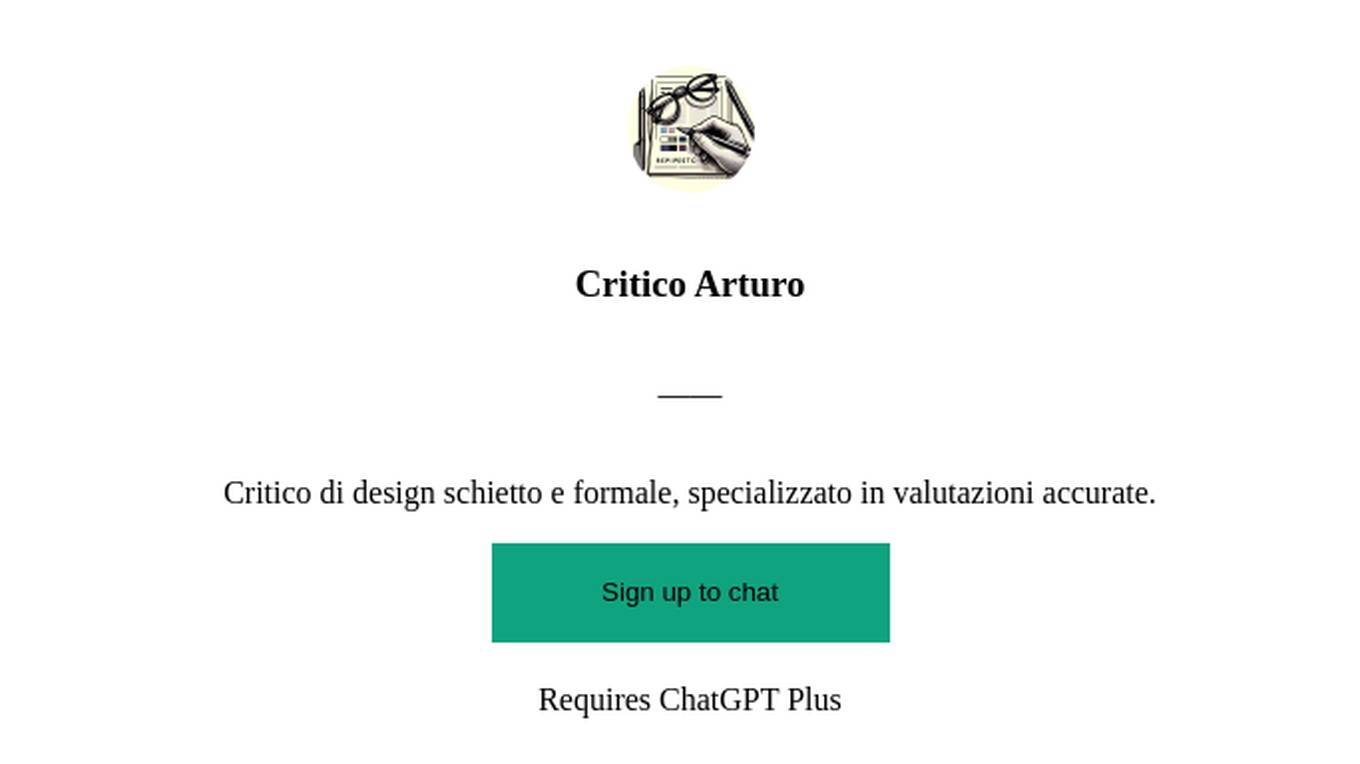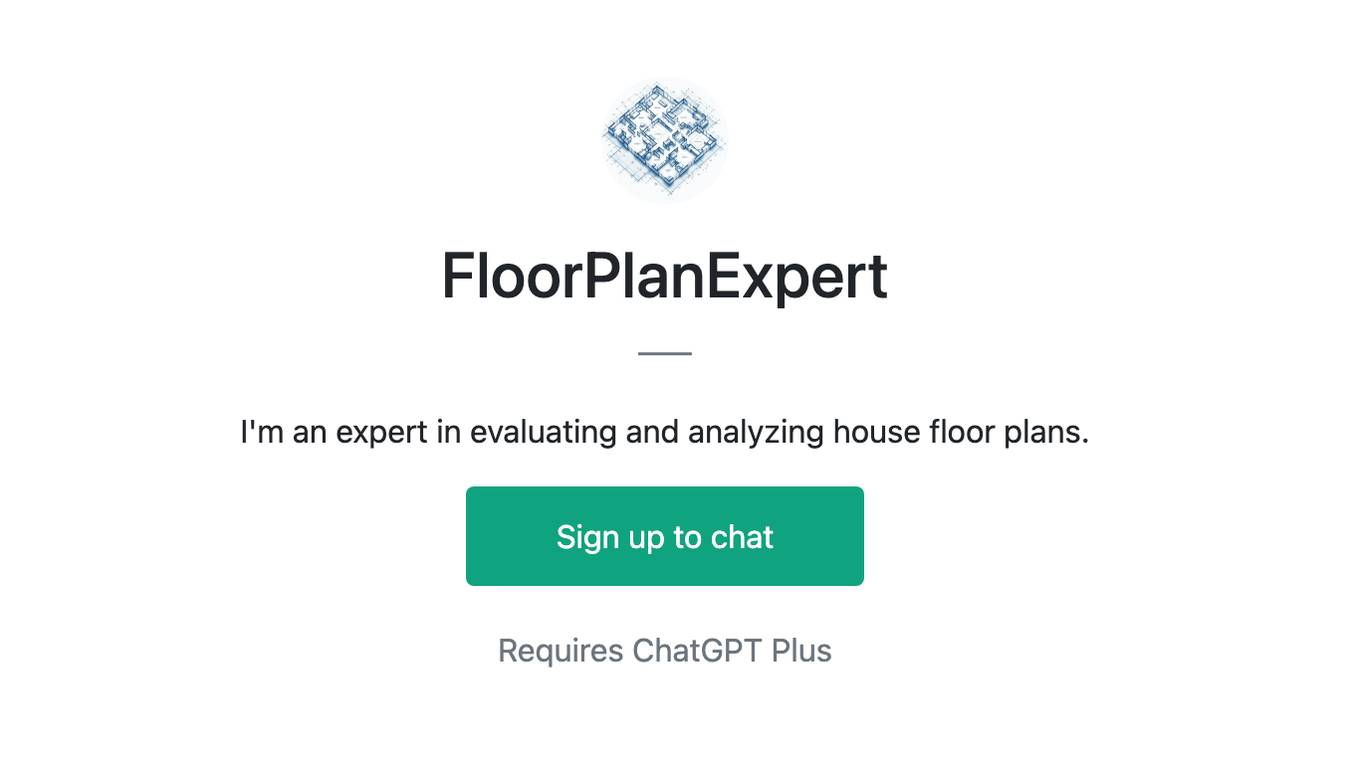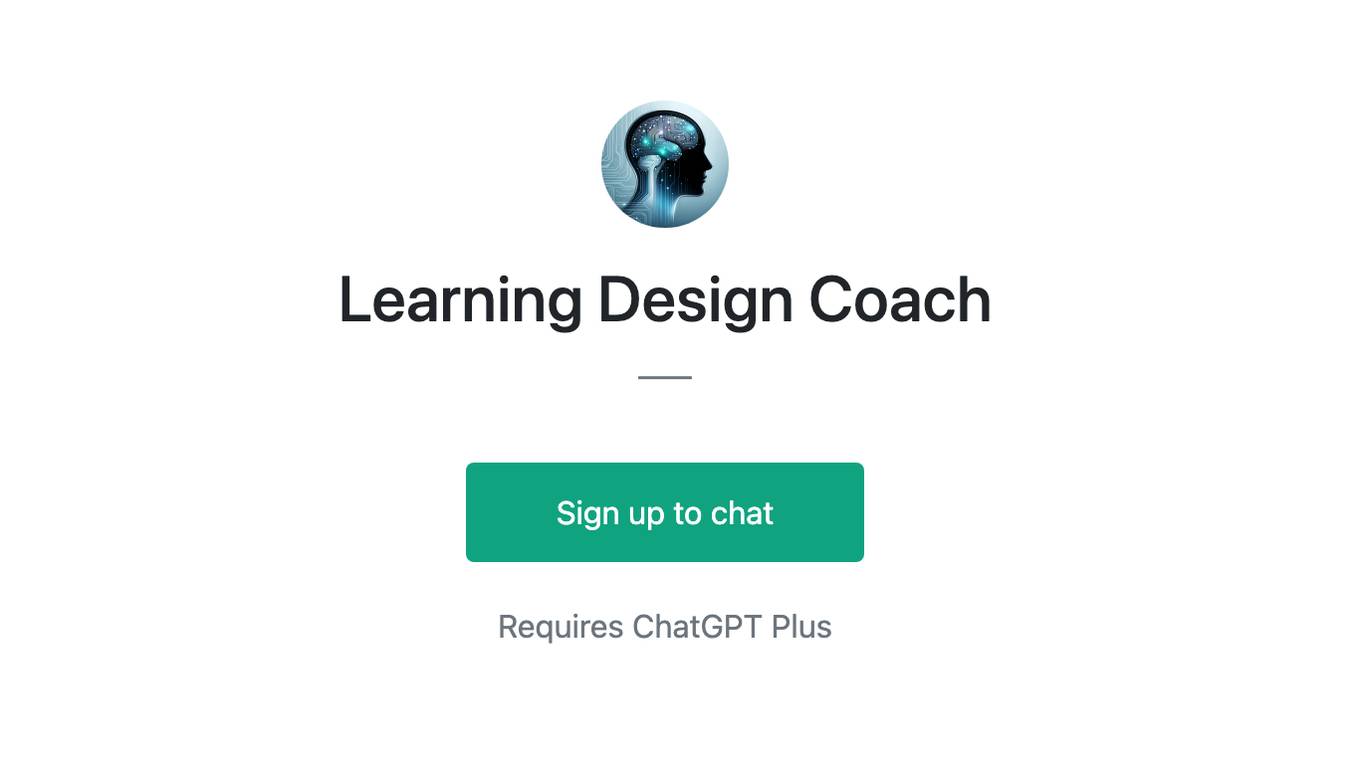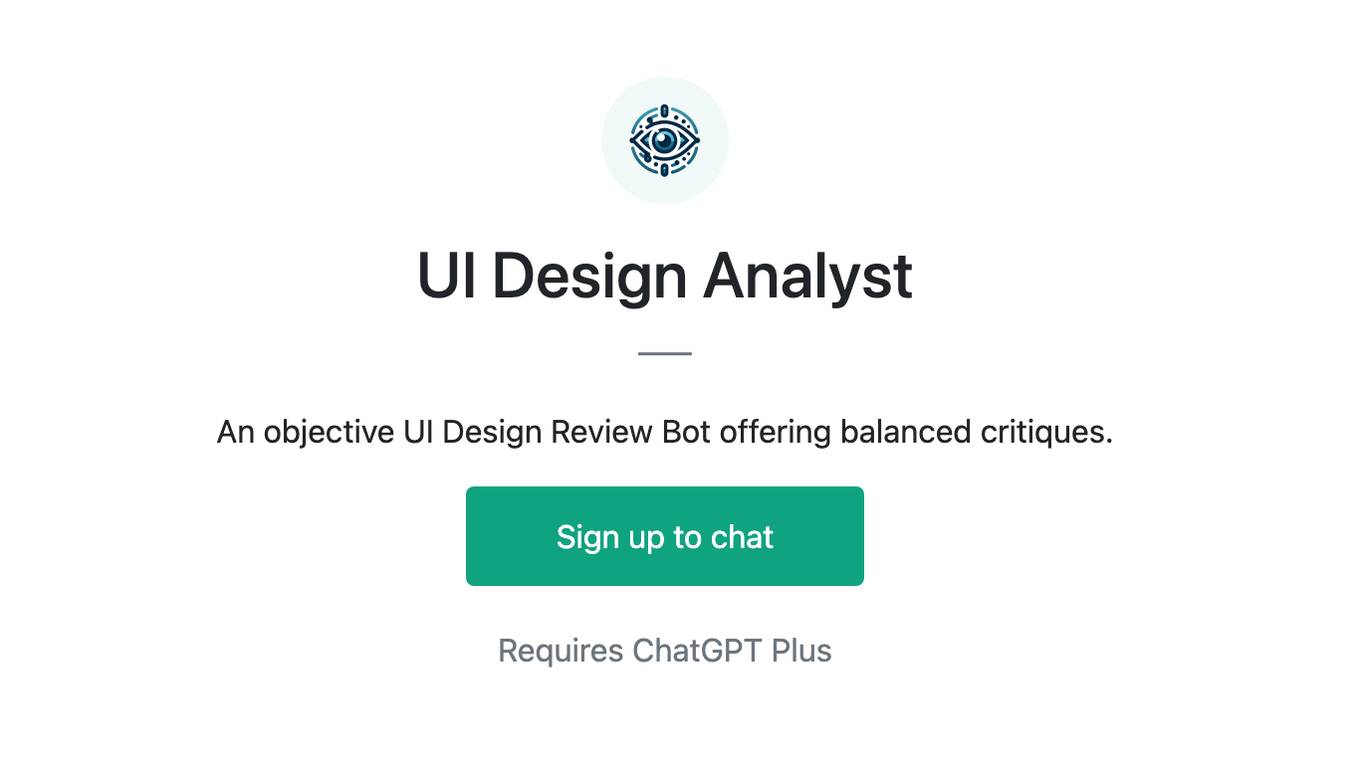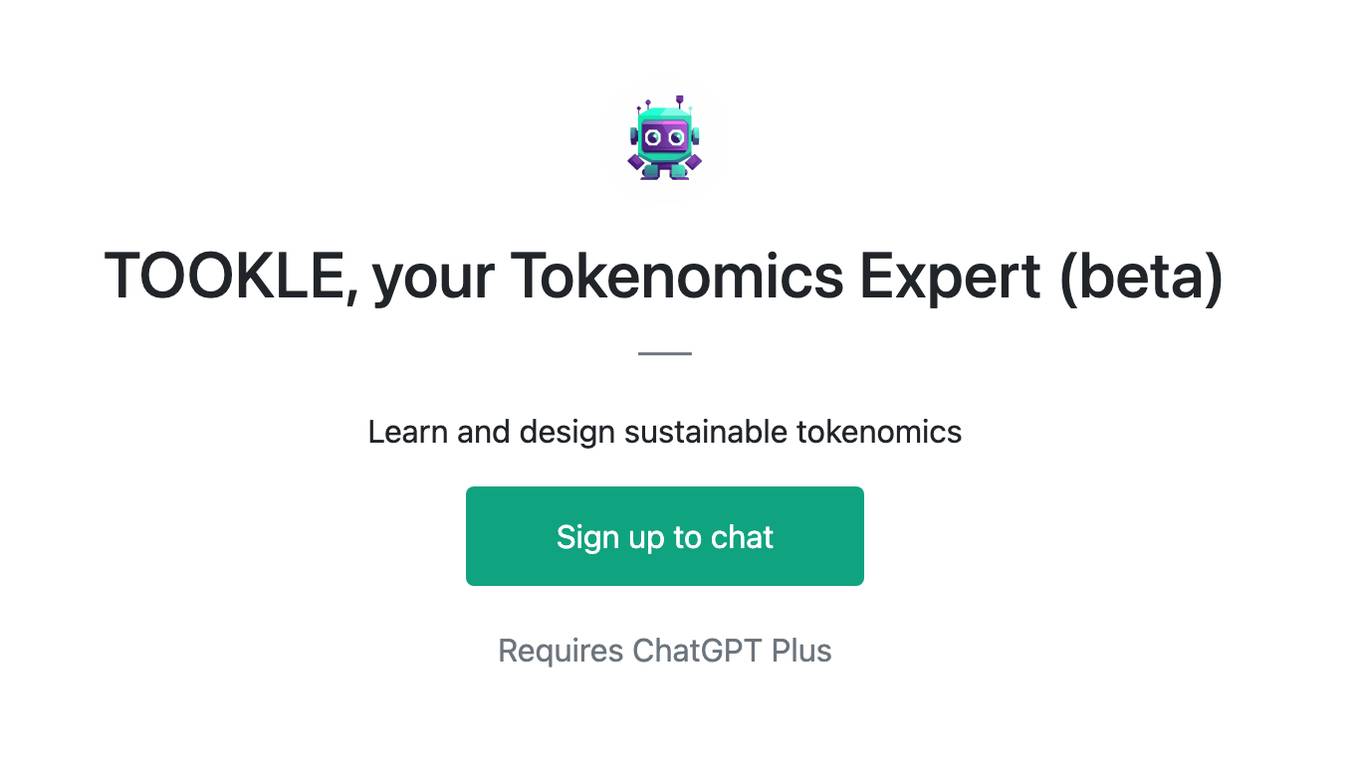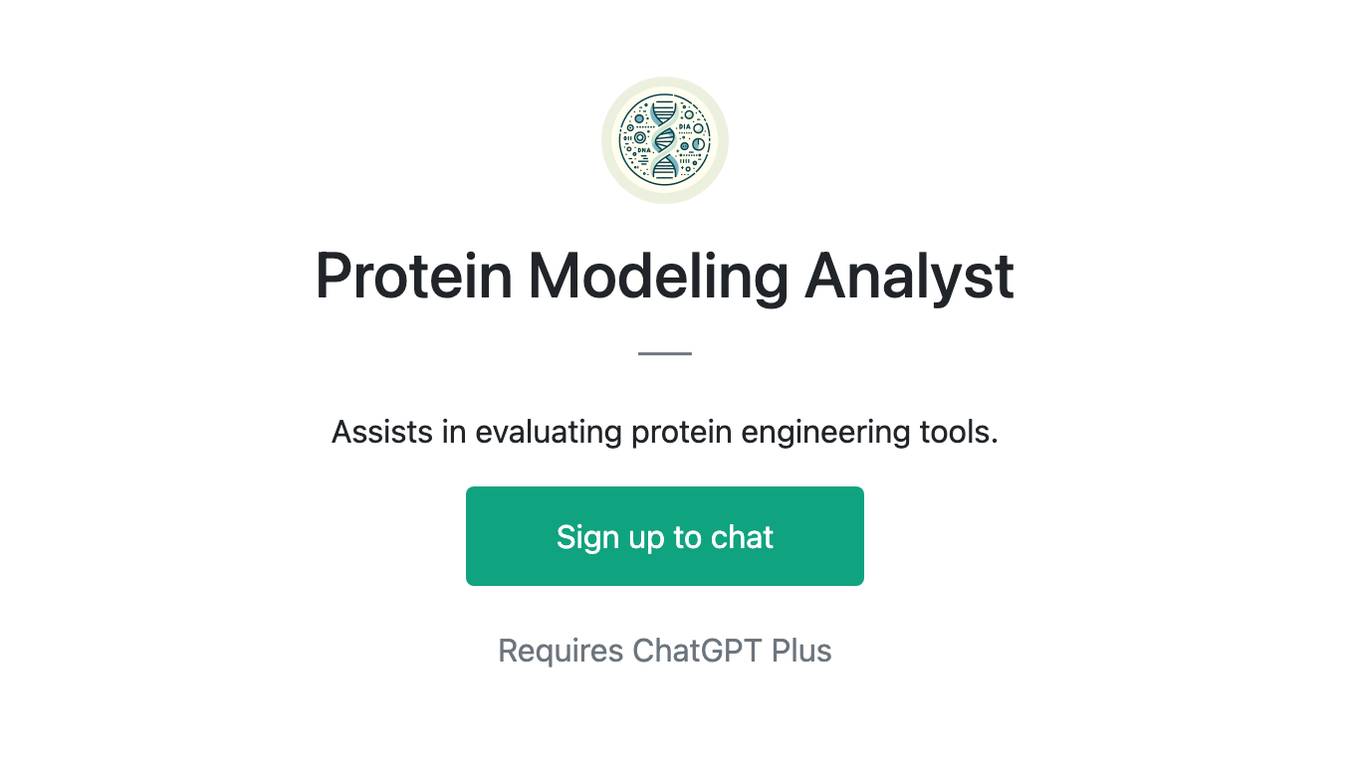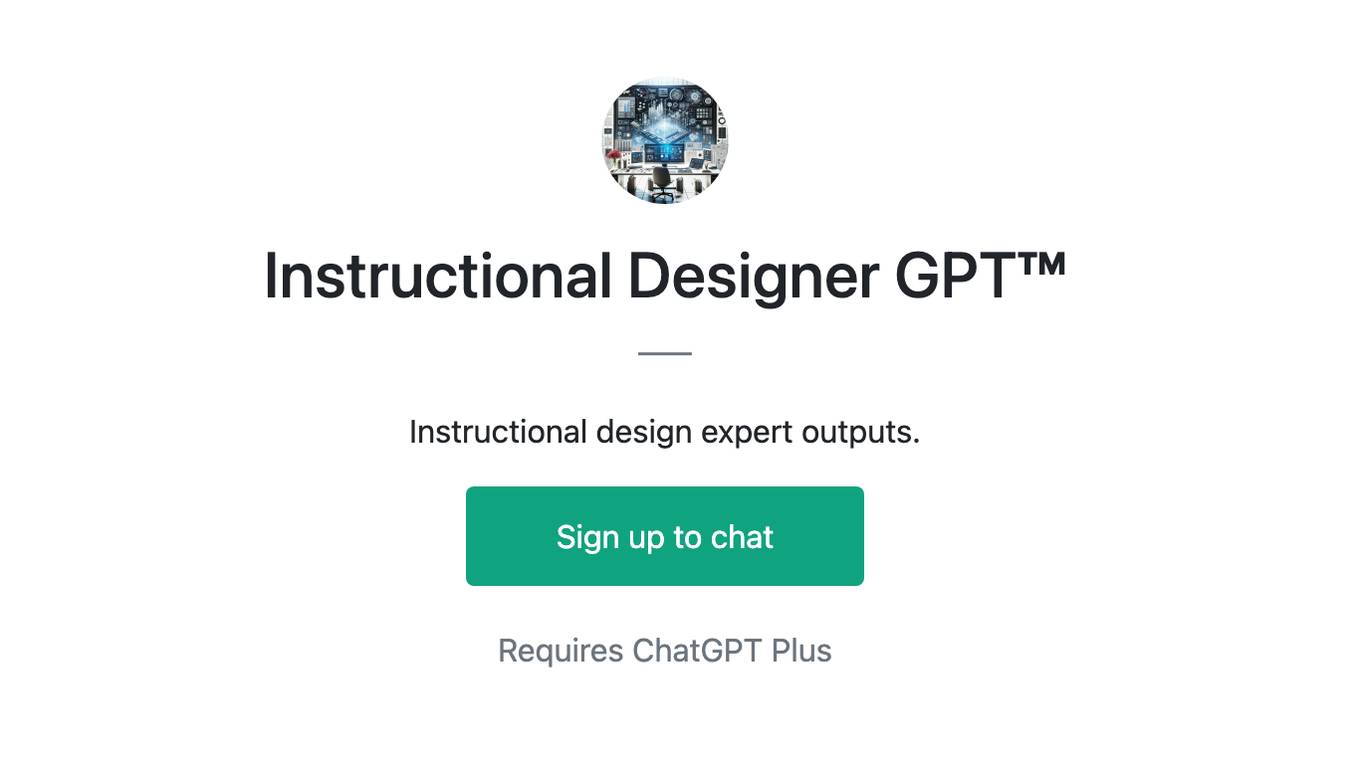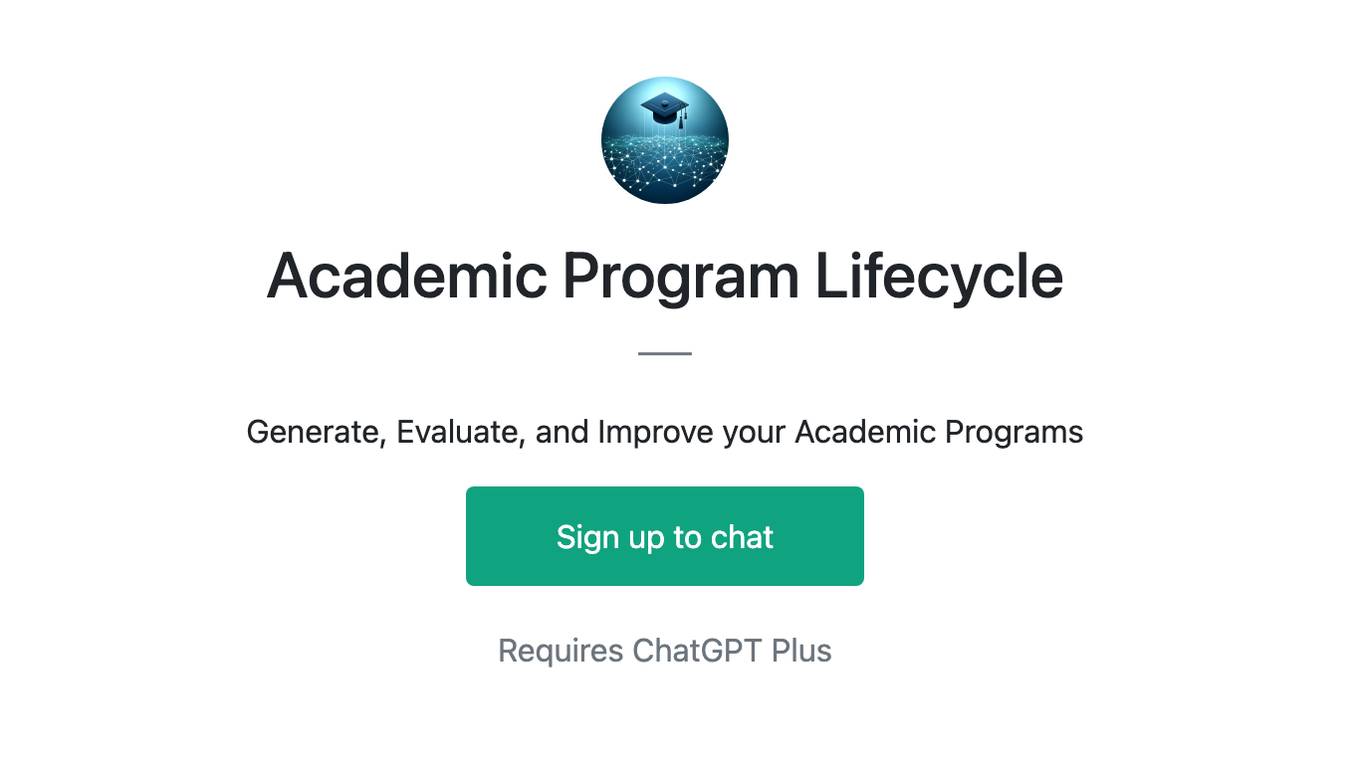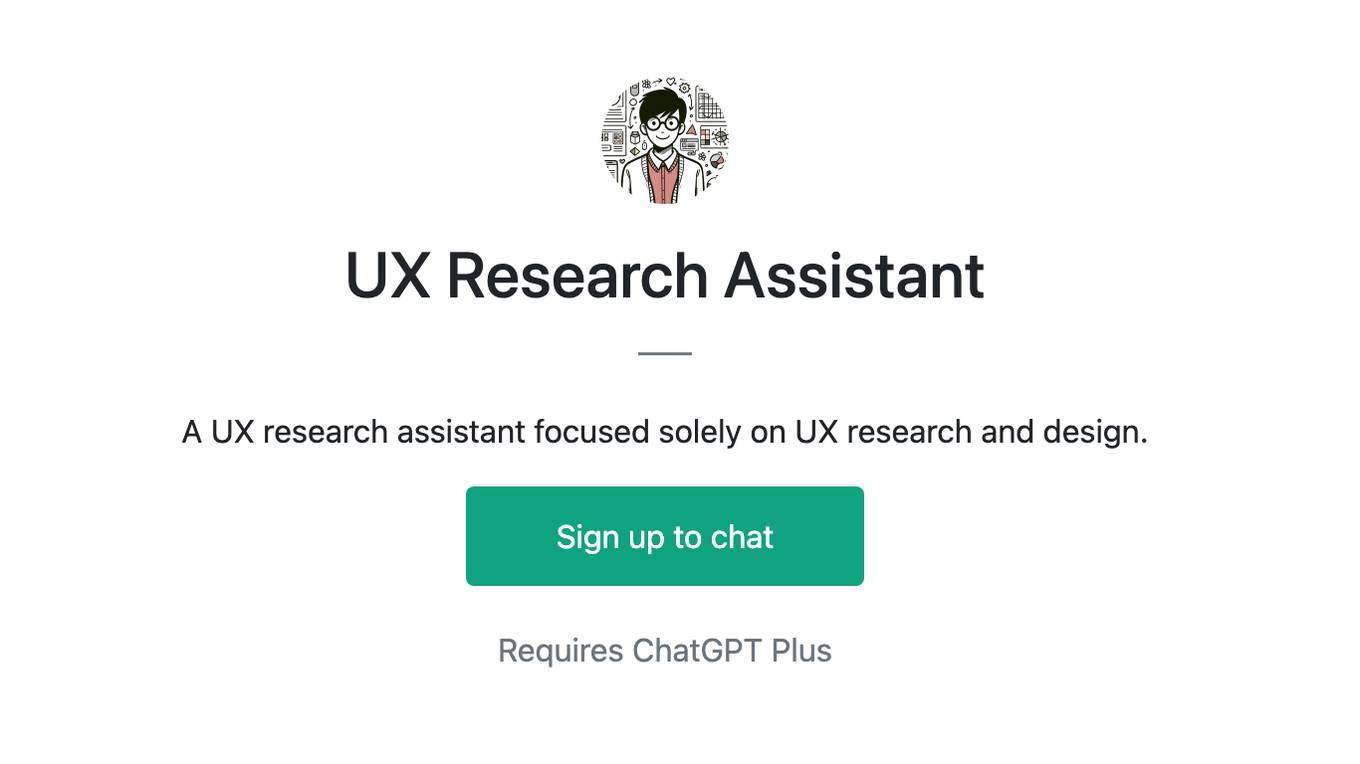Best AI tools for< Design Evaluator >
Infographic
20 - AI tool Sites

Mock-My-Mockup
Mock-My-Mockup is an AI-powered product design tool created by Fairpixels. It allows users to upload a screenshot of a page they are working on and receive brutally honest feedback. The tool offers a user-friendly interface where users can easily drag and drop their product screenshots for analysis.
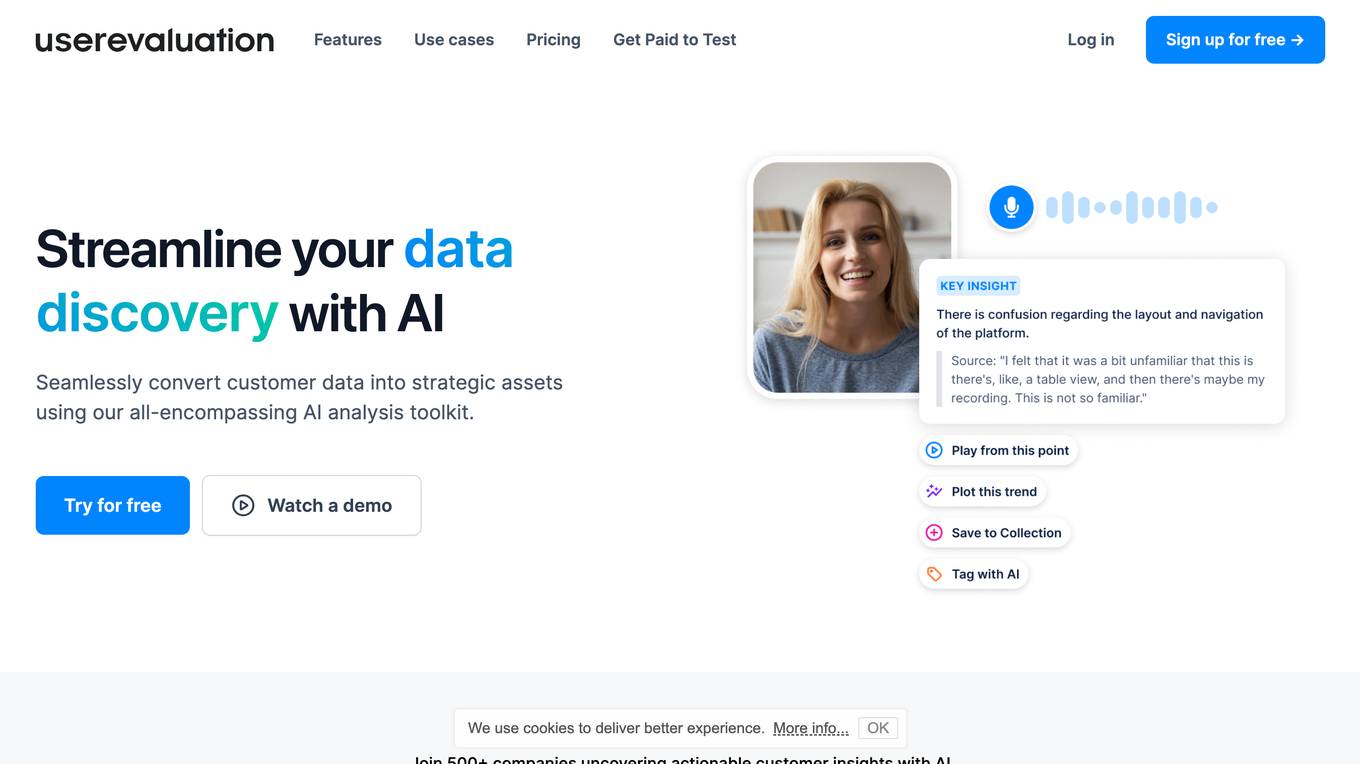
User Evaluation
User Evaluation is an AI-first user research platform that leverages AI technology to provide instant insights, comprehensive reports, and on-demand answers to enhance customer research. The platform offers features such as AI-driven data analysis, multilingual transcription, live timestamped notes, AI reports & presentations, and multimodal AI chat. User Evaluation empowers users to analyze qualitative and quantitative data, synthesize AI-generated recommendations, and ensure data security through encryption protocols. It is designed for design agencies, product managers, founders, and leaders seeking to accelerate innovation and shape exceptional product experiences.
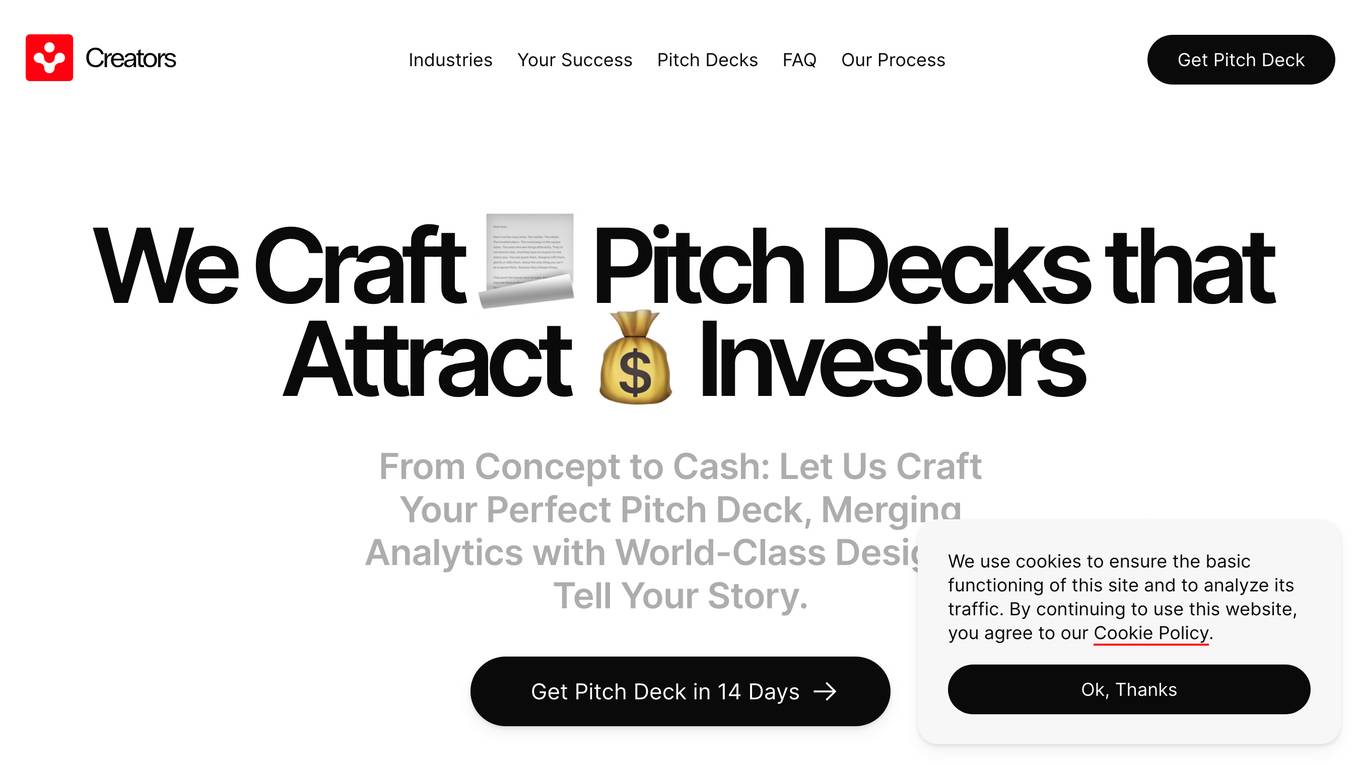
Creators
Creators is a website that offers a service to create pitch decks for startups and growing businesses. They specialize in creating visually stunning and impactful pitch decks that tell the story of the business and capture the attention of investors. They use a data-driven approach to storytelling, incorporating relevant data and analytics to back up the idea and prove its potential to investors. They also use artificial intelligence to identify the most compelling way to present the information, ensuring that the pitch deck is not just informative, but also engaging. Creators has a team of expert designers who excel at transforming complex ideas into clear, understandable visuals that are both stunning and highly effective in communicating the message to potential investors.

VisualHUB
VisualHUB is an AI-powered design analysis tool that provides instant insights on UI, UX, readability, and more. It offers features like A/B Testing, UI Analysis, UX Analysis, Readability Analysis, Margin and Hierarchy Analysis, and Competition Analysis. Users can upload product images to receive detailed reports with actionable insights and scores. Trusted by founders and designers, VisualHUB helps optimize design variations and identify areas for improvement in products.
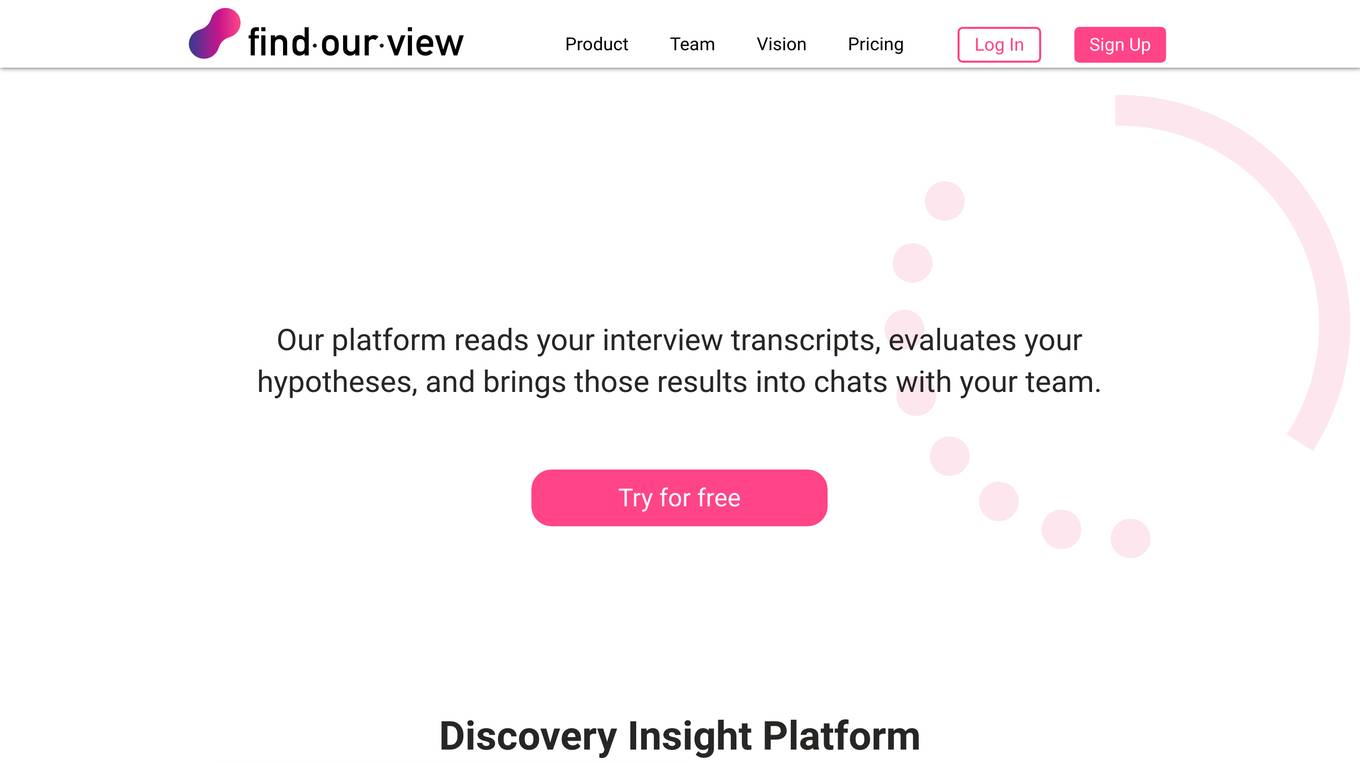
Wix
Wix.com is a website builder platform that allows users to create stunning websites without the need for coding skills. With a user-friendly interface and a wide range of customizable templates, Wix empowers individuals and businesses to establish their online presence effortlessly. Users can choose from various design elements, add functionalities through apps, and optimize their websites for different devices. Wix also provides hosting services and domain registration to simplify the entire website creation process.
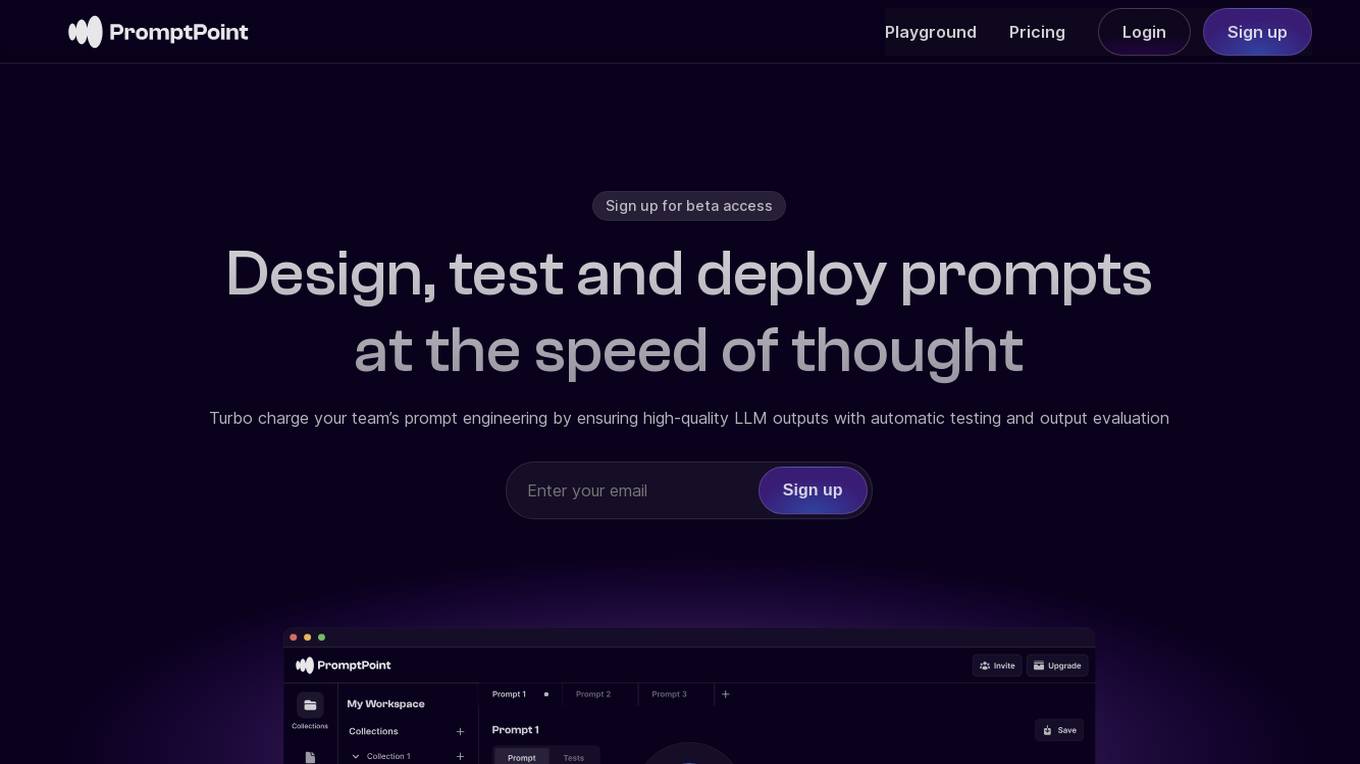
PromptPoint Playground
PromptPoint Playground is an AI tool designed to help users design, test, and deploy prompts quickly and efficiently. It enables teams to create high-quality LLM outputs through automatic testing and evaluation. The platform allows users to make non-deterministic prompts predictable, organize prompt configurations, run automated tests, and monitor usage. With a focus on collaboration and accessibility, PromptPoint Playground empowers both technical and non-technical users to leverage the power of large language models for prompt engineering.
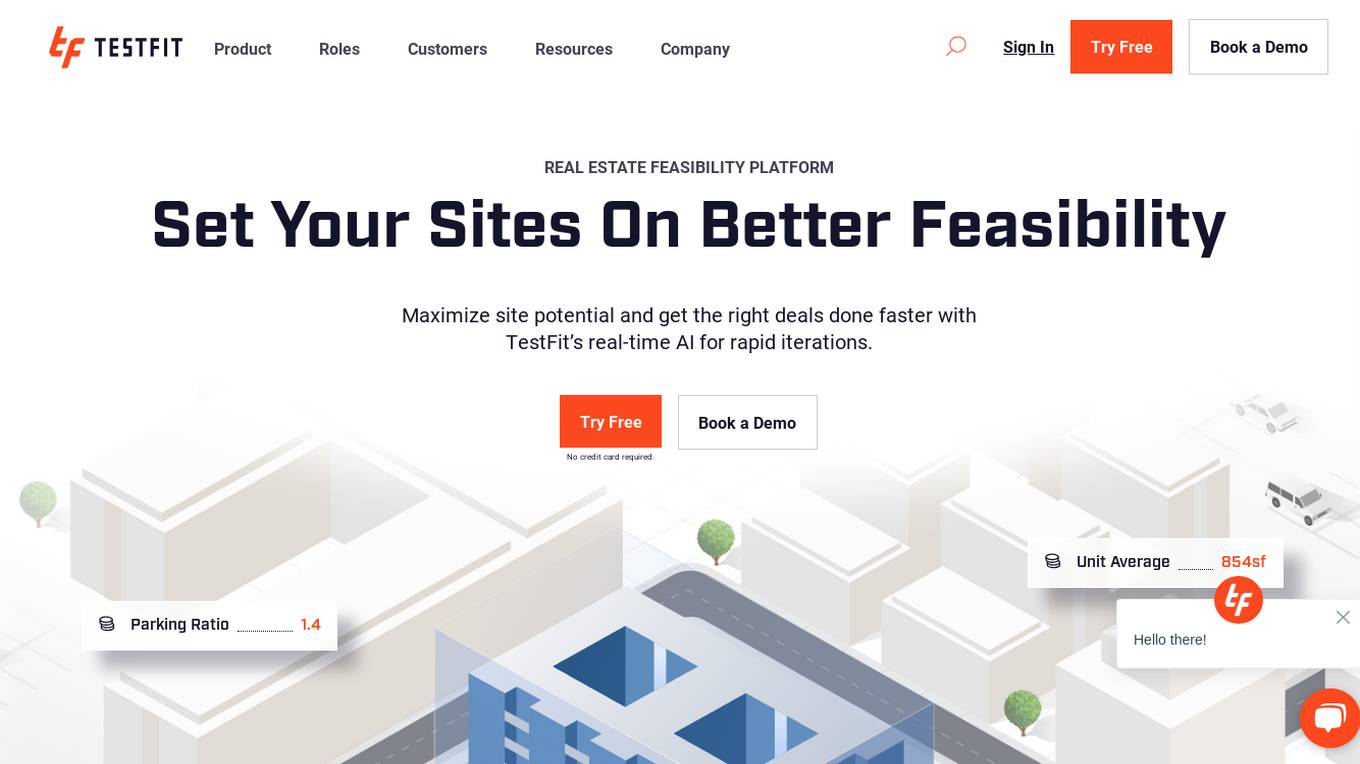
TestFit
TestFit is a real estate feasibility platform that uses AI to help developers, architects, contractors, and brokers evaluate deals and make better decisions. It provides real-time insights into design, cost, and constructability, and integrates with a variety of other software tools. TestFit can help users save time and money, and make more informed decisions about their real estate projects.

Lisapet.AI
Lisapet.AI is an AI prompt testing suite designed for product teams to streamline the process of designing, prototyping, testing, and shipping AI features. It offers a comprehensive platform with features like best-in-class AI playground, variables for dynamic data inputs, structured outputs, side-by-side editing, function calling, image inputs, assertions & metrics, performance comparison, data sets organization, shareable reports, comments & feedback, token & cost stats, and more. The application aims to help teams save time, improve efficiency, and ensure the reliability of AI features through automated prompt testing.
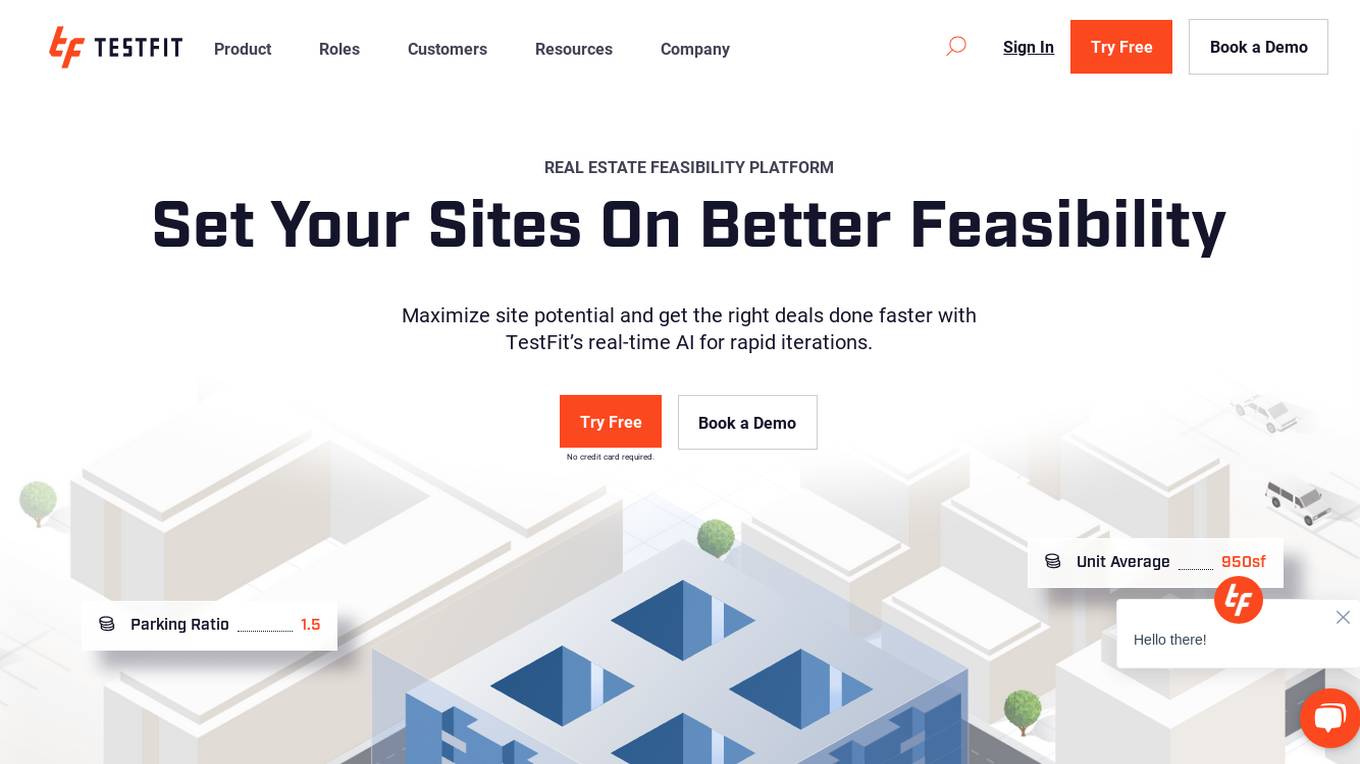
TestFit
TestFit is a real estate feasibility platform that helps users maximize site potential and get the right deals done faster. It uses real-time AI for rapid iterations, allowing users to evaluate deals in hours instead of weeks. TestFit also integrates with other software, such as Revit and Enscape, to streamline the design and documentation process.
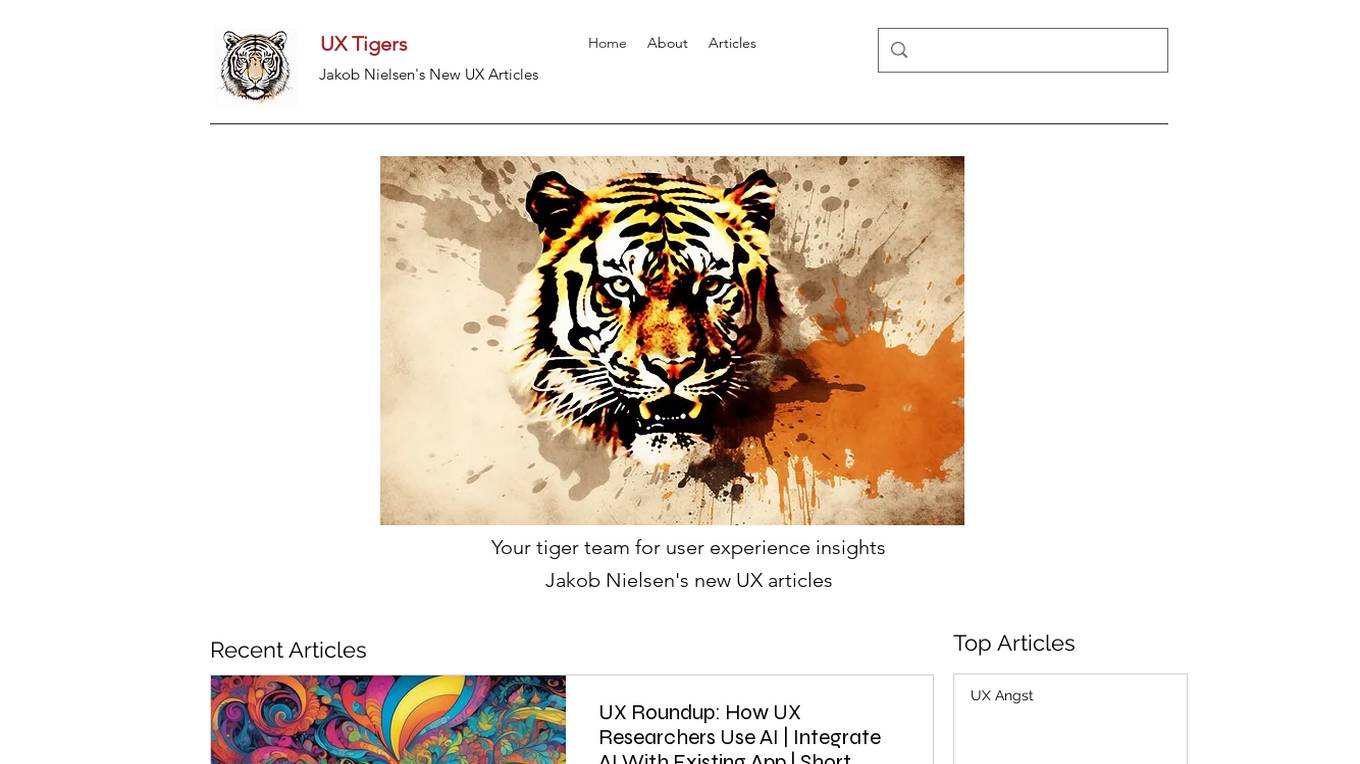
UX Tigers
UX Tigers is a website that provides user experience insights and articles from Jakob Nielsen. The website covers a wide range of UX topics, including user research, design, and usability. UX Tigers also offers a variety of resources, such as templates and tools, to help UX professionals improve their work.
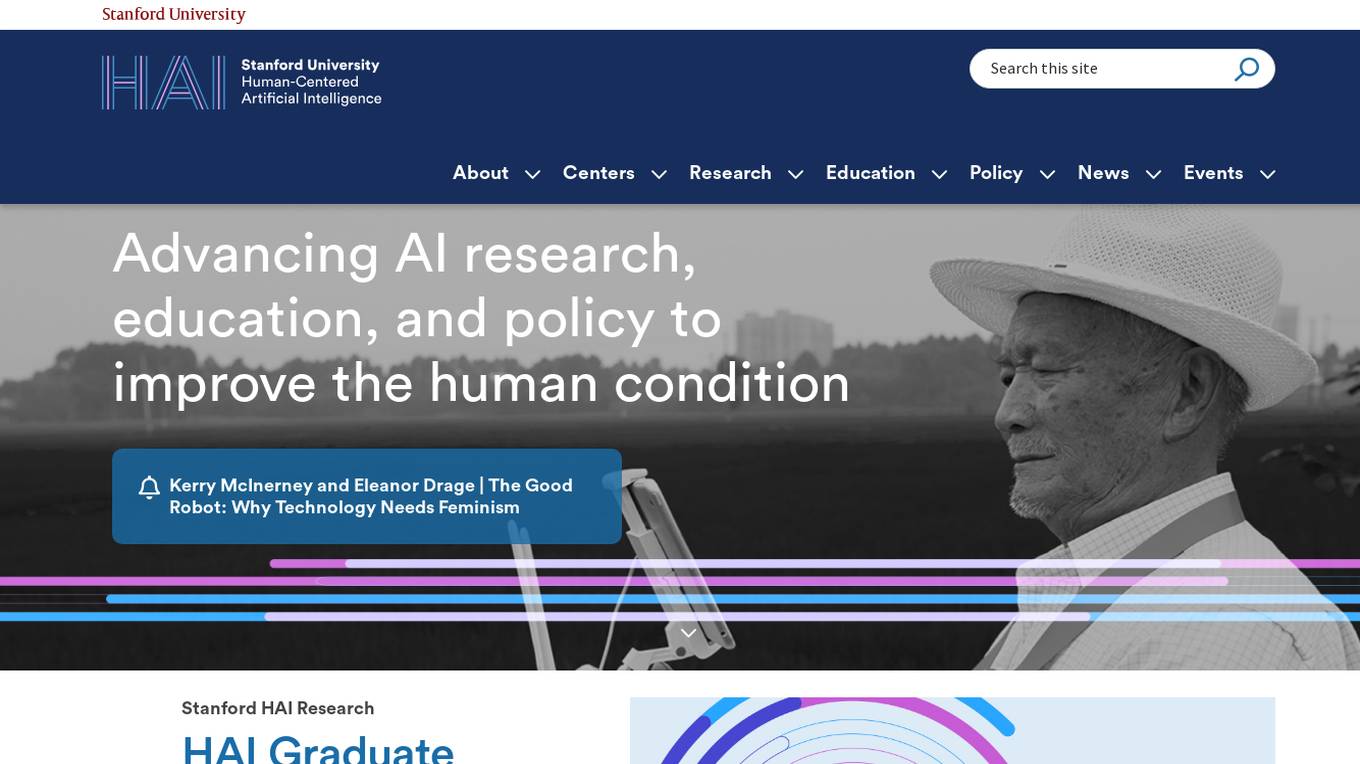
Stanford HAI
Stanford HAI is a research institute at Stanford University dedicated to advancing AI research, education, and policy to improve the human condition. The institute brings together researchers from a variety of disciplines to work on a wide range of AI-related projects, including developing new AI algorithms, studying the ethical and societal implications of AI, and creating educational programs to train the next generation of AI leaders. Stanford HAI is committed to developing human-centered AI technologies and applications that benefit all of humanity.
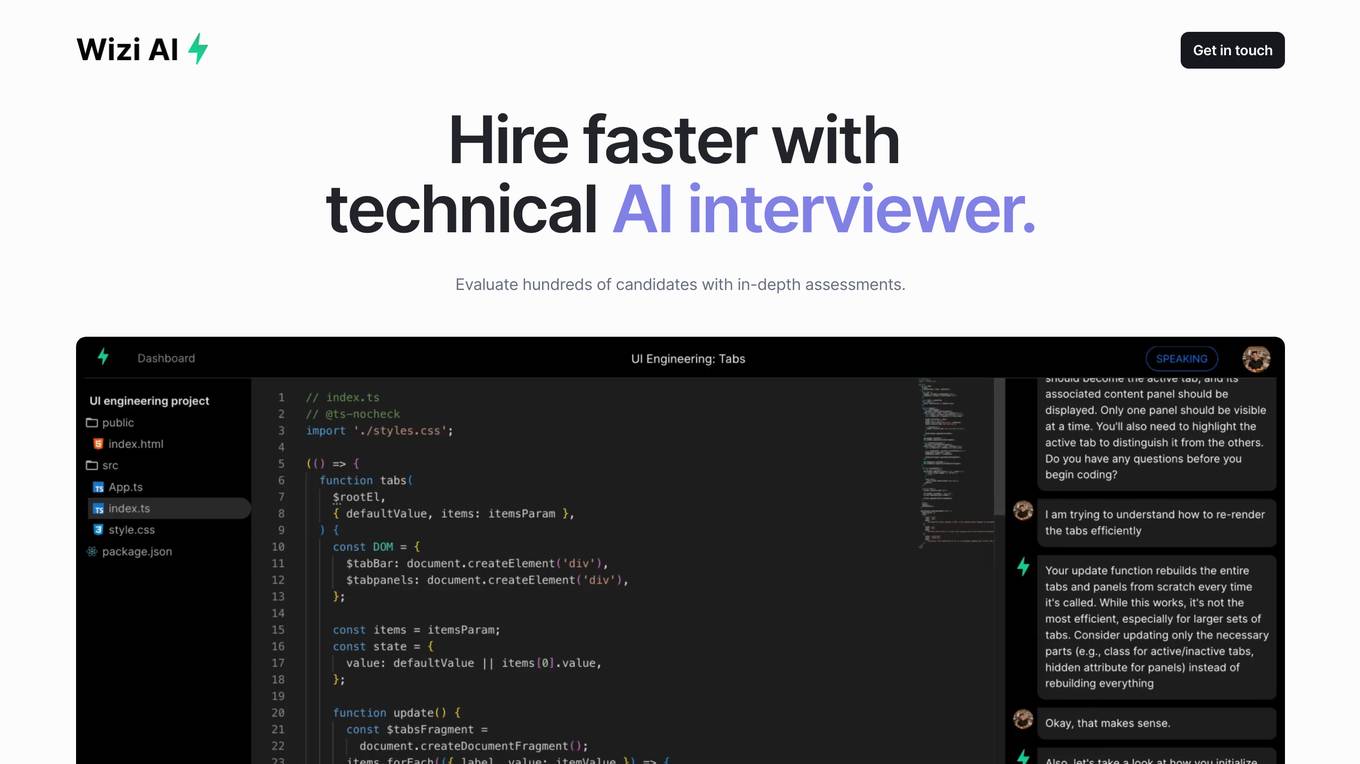
Wizi AI
Wizi AI is a technical AI interviewer that helps employers evaluate hundreds of candidates with in-depth assessments. It goes beyond basic coding challenges and conducts an onsite interview experience for every candidate. Employers get actionable hiring signals with in-depth reports on system design, project implementation, domain expertise, and debugging skills. Wizi AI saves teams time by screening all candidates with AI and bringing only the best to onsites.
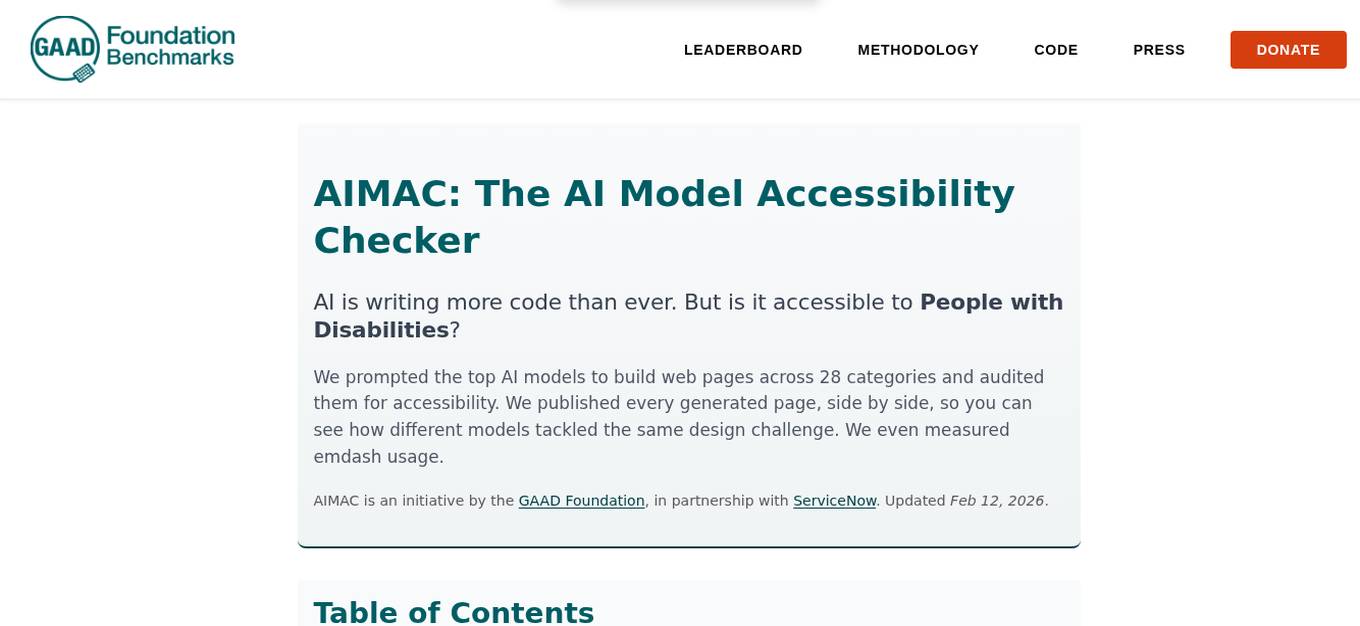
AIMAC Leaderboard
AIMAC Leaderboard is an AI Model Accessibility Checker that evaluates the accessibility of web pages generated by AI models across 28 categories. It compares top AI models side by side, auditing them for accessibility and measuring their performance. The initiative aims to ensure that AI models write accessible code by default. The project is a collaboration between the GAAD Foundation and ServiceNow, providing insights into how different models handle the same design challenges.
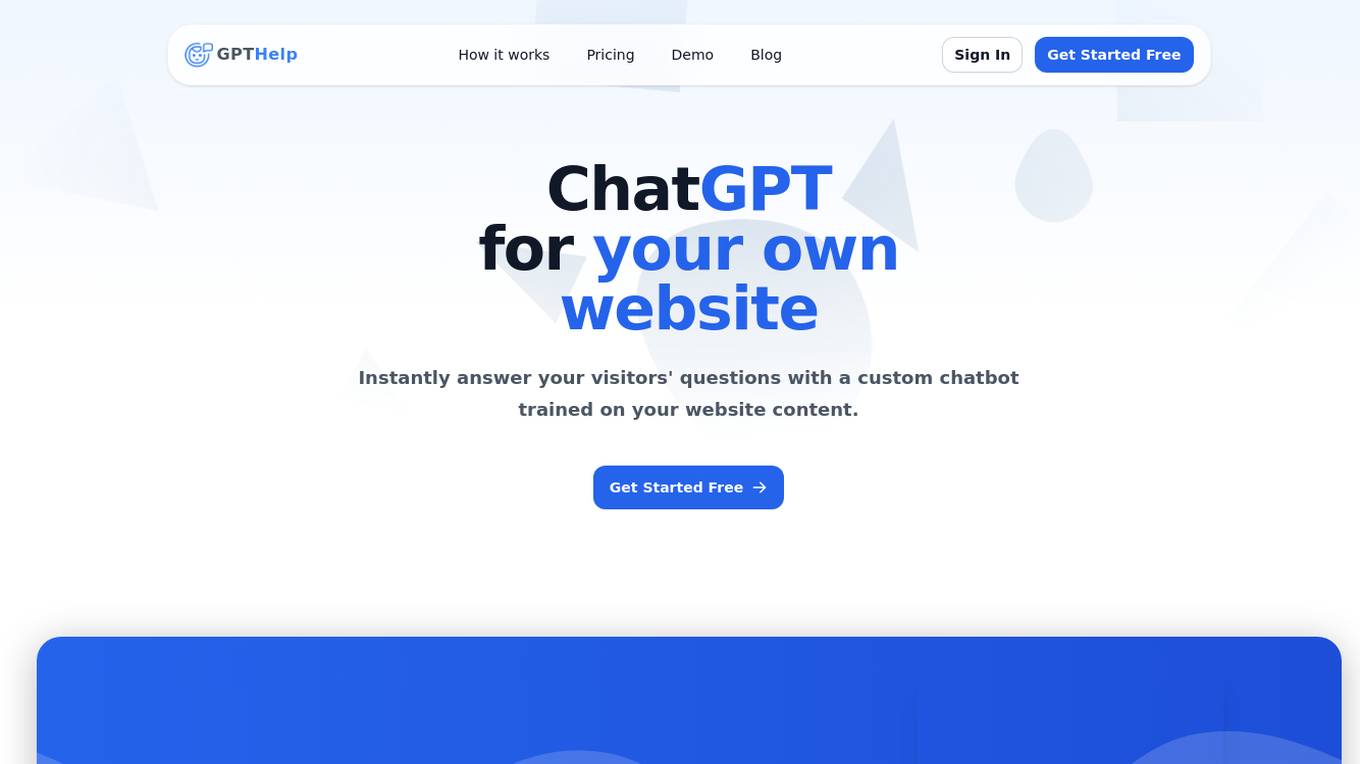
GPTHelp.ai
GPTHelp.ai is an AI chatbot tool designed to help website owners provide instant answers to their visitors' questions. The tool is trained on the website content, files, and FAQs to deliver accurate responses. Users can customize the chatbot's design, behavior, and personality to fit their needs. With GPTHelp.ai, creating and training your own AI chatbot is quick and easy, eliminating the need for manual setup of FAQs. The tool also allows users to monitor conversations, intervene if necessary, and view chat history for performance evaluation.

SDXL Turbo
SDXL Turbo is a cutting-edge text-to-image generation model that leverages Adversarial Diffusion Distillation (ADD) technology for high-quality, real-time image synthesis. Developed by Stability AI, SDXL Turbo is a distilled version of the SDXL 1.0 model, specifically trained for real-time synthesis. It excels in generating photorealistic images from text prompts in a single network evaluation, making it ideal for applications demanding speed and efficiency, such as video games, virtual reality, and instant content creation. SDXL Turbo is accessible to both professionals and hobbyists alike, with simple setup requirements and an intuitive interface. It presents unparalleled opportunities for research and development in advanced AI and image synthesis.
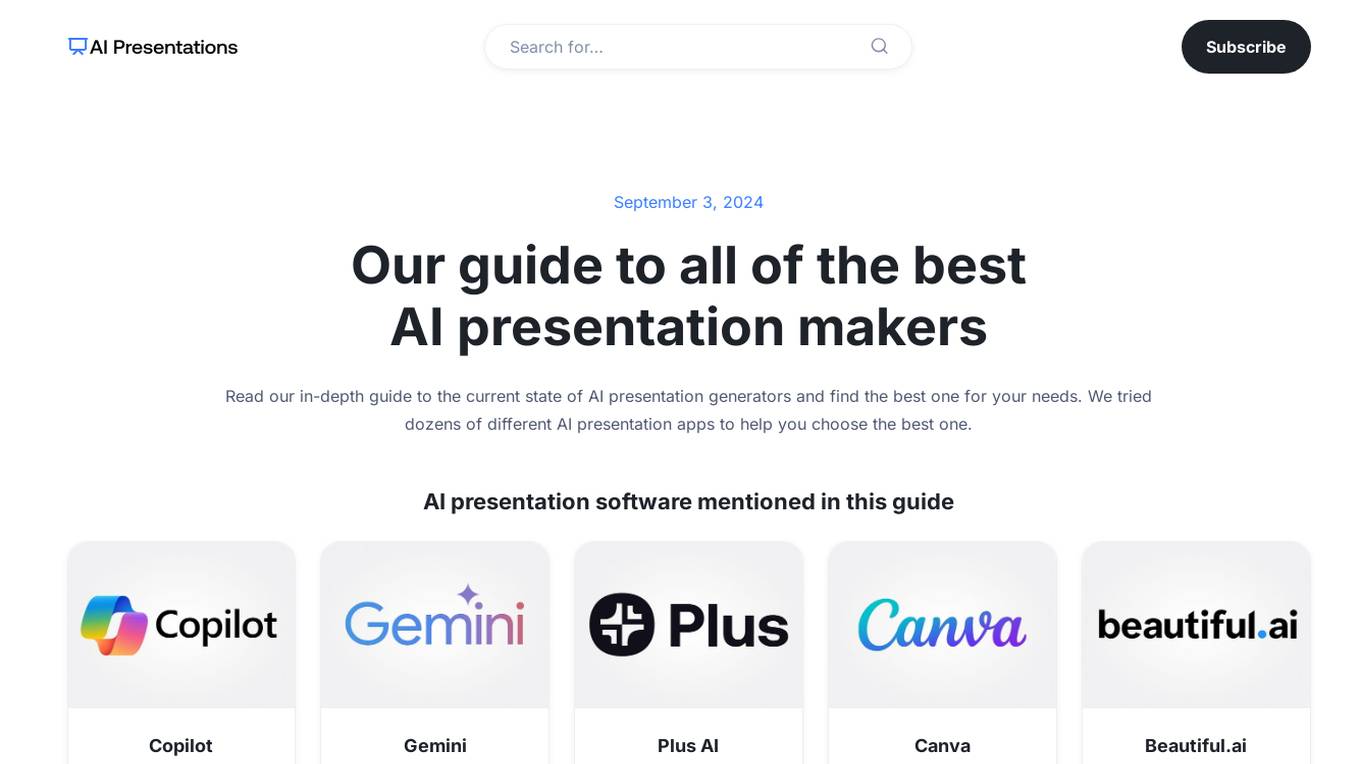
AIPresentationMakers
The website is a platform that provides reviews and recommendations for AI presentation makers. It offers in-depth guides on various AI presentation generators and helps users choose the best one for their needs. The site features detailed reviews of different AI presentation software, including their features, pros, and cons. Users can find information on popular AI tools like Plus AI, Canva, Beautiful.ai, and more. The platform also includes comparisons between different AI tools, pricing details, and evaluations of AI outputs and design components.
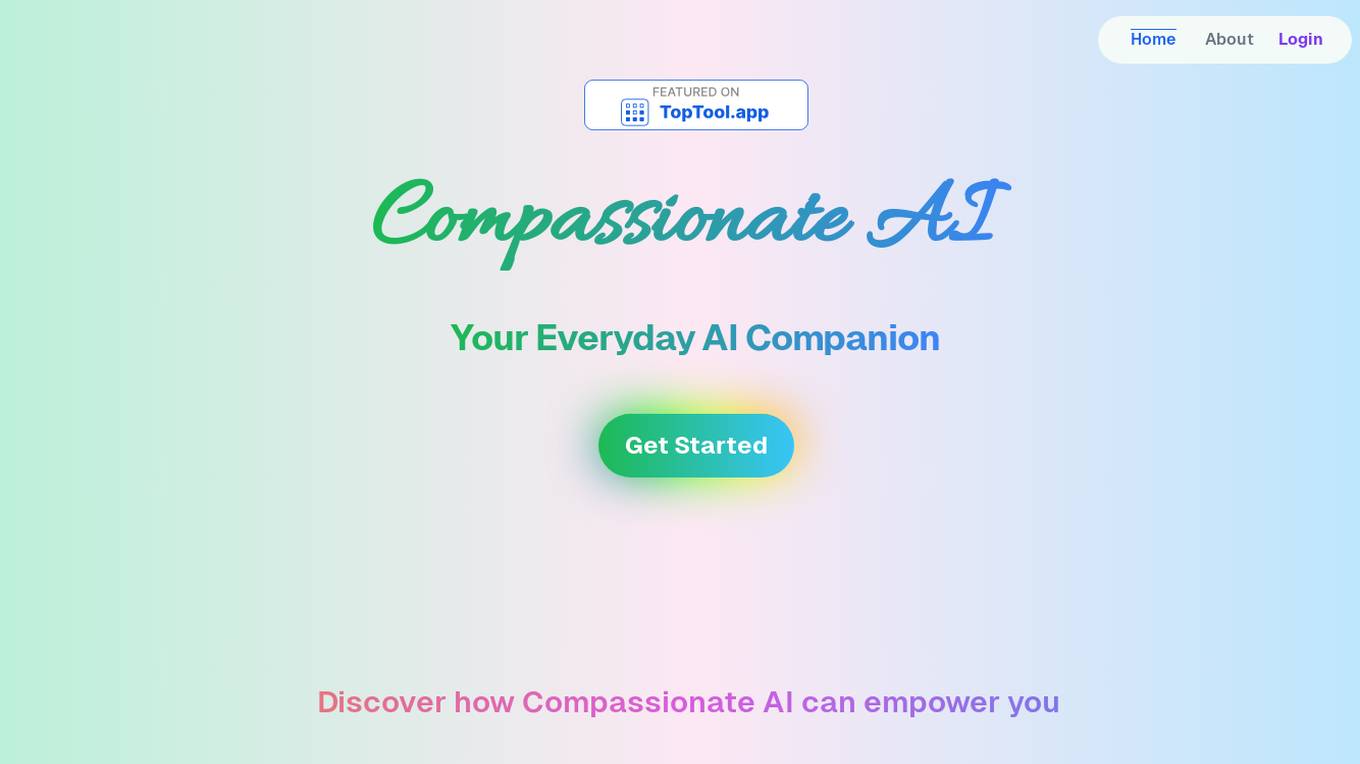
Compassionate AI
Compassionate AI is a cutting-edge AI-powered platform that empowers individuals and organizations to create and deploy AI solutions that are ethical, responsible, and aligned with human values. With Compassionate AI, users can access a comprehensive suite of tools and resources to design, develop, and implement AI systems that prioritize fairness, transparency, and accountability.

noluai.com
The website page provides detailed insights into the mechanics and technologies behind poker platforms in the online gaming industry. It delves into topics such as Random Number Generators (RNGs), fair play, anti-cheat technologies, server-side logic, player matching, platform stability, multi-table functionality, mobile vs desktop platforms, in-game communication systems, real-time hand histories, hand evaluation algorithms, card shuffling algorithms, security layers, handling player disconnections, payment system integration, casino bonus integration, leaderboards, low latency importance, rebuy and add-on mechanics, automatic tournament scheduling, Sit & Go vs scheduled tournaments, virtual economy, AI opponents, player statistics, sound design, testing processes, technical issues, emerging technologies, regulatory compliance, taxes handling, game variations, card animation, and the future of poker platform mechanics.

X-Design
X-Design is an AI-powered photo editing studio tailored for marketing and e-commerce businesses. It offers a suite of AI tools for background removal, image generation, and retouching to create professional-quality photos effortlessly. Users can enhance product visuals, create fashion model images, change colors, and upscale images with AI technology. The platform provides a smooth editing experience with extensive templates and seamless workflows, empowering users to design like a pro and optimize their online sales processes.
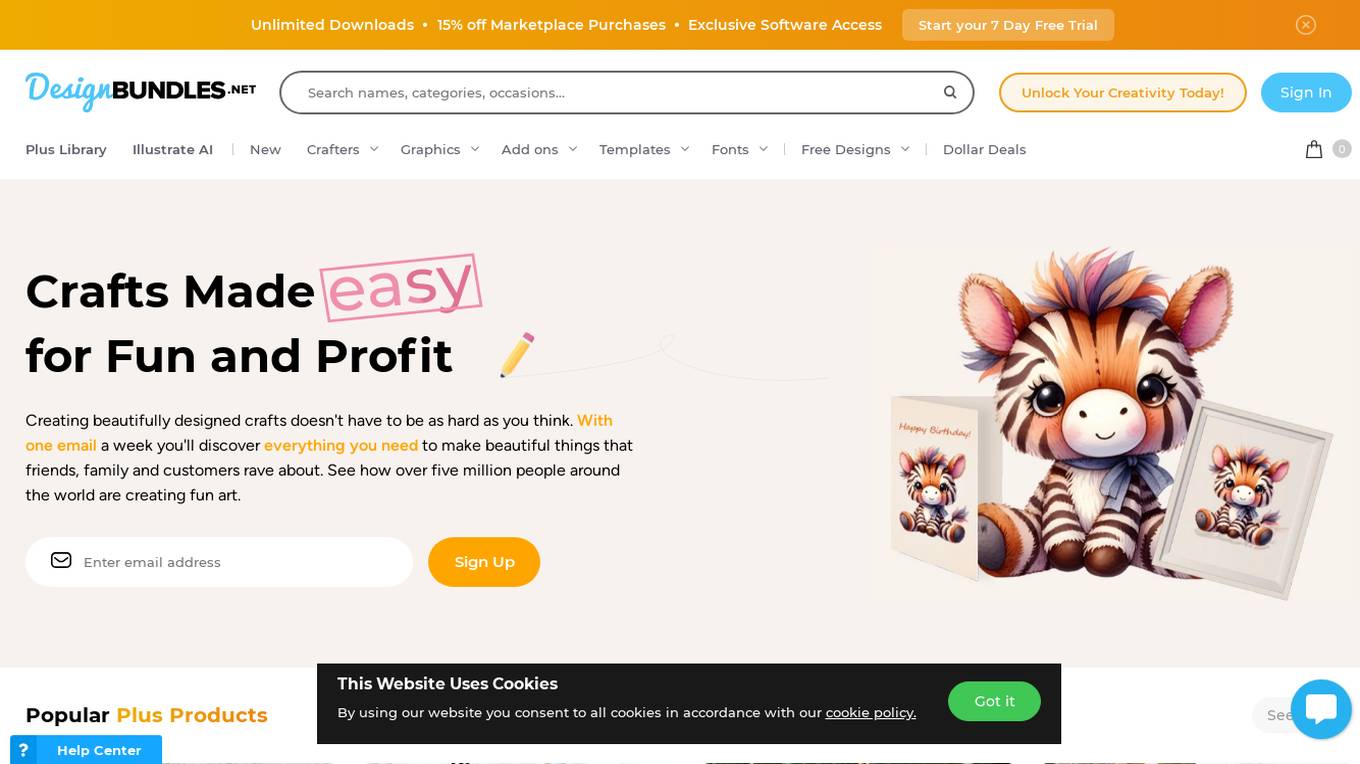
Design Bundles
Design Bundles is a comprehensive online platform offering a wide range of design resources including SVG files, clipart, laser designs, sublimation PNGs, illustrations, photos, and more. Users can access unlimited downloads, exclusive software, and marketplace purchases with various discounts. The platform also features an exclusive AI tool called Illustrate AI, which allows users to generate unique images effortlessly. Design Bundles aims to provide a seamless experience for designers, crafters, and creators to explore their creativity and access high-quality design assets.
0 - Open Source Tools
20 - OpenAI Gpts
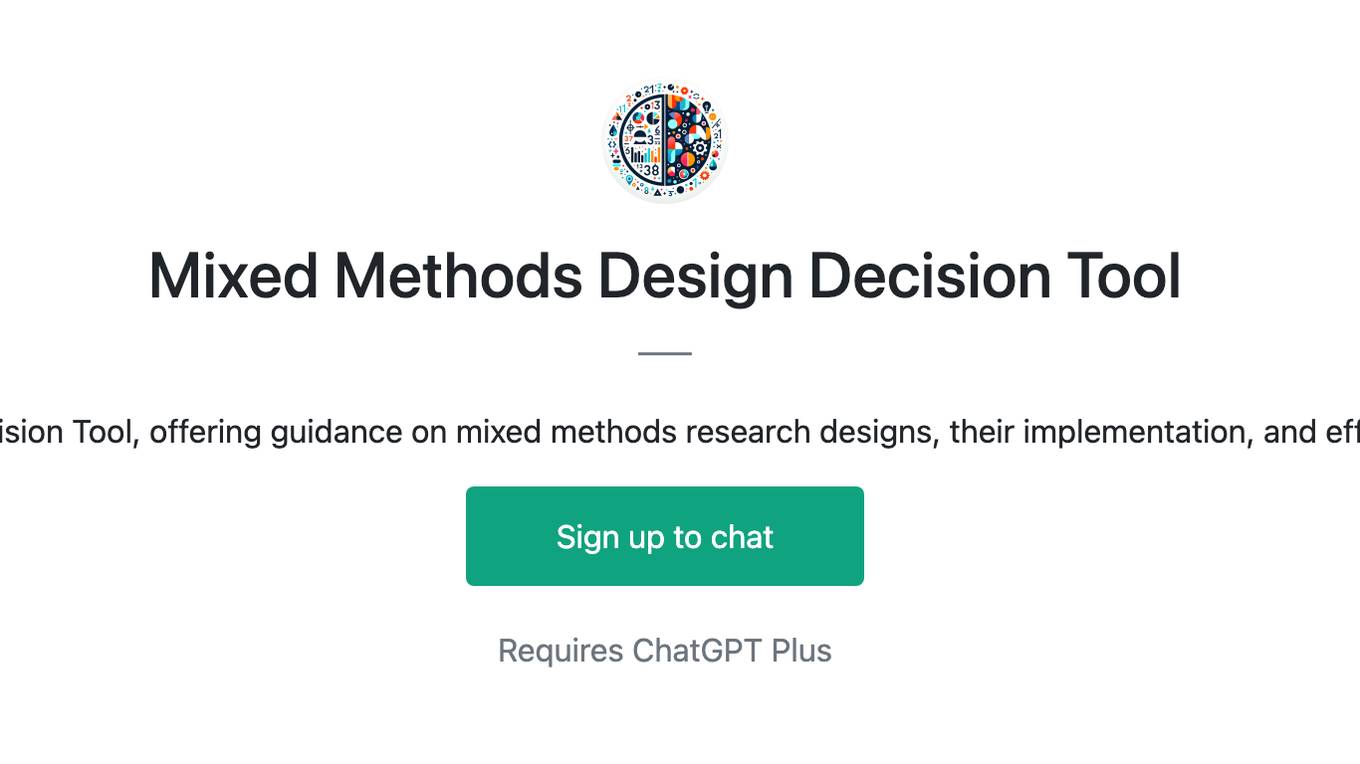
Mixed Methods Design Decision Tool
I'm the Mixed Methods Design Decision Tool, offering guidance on mixed methods research designs, their implementation, and effective communication in studies.
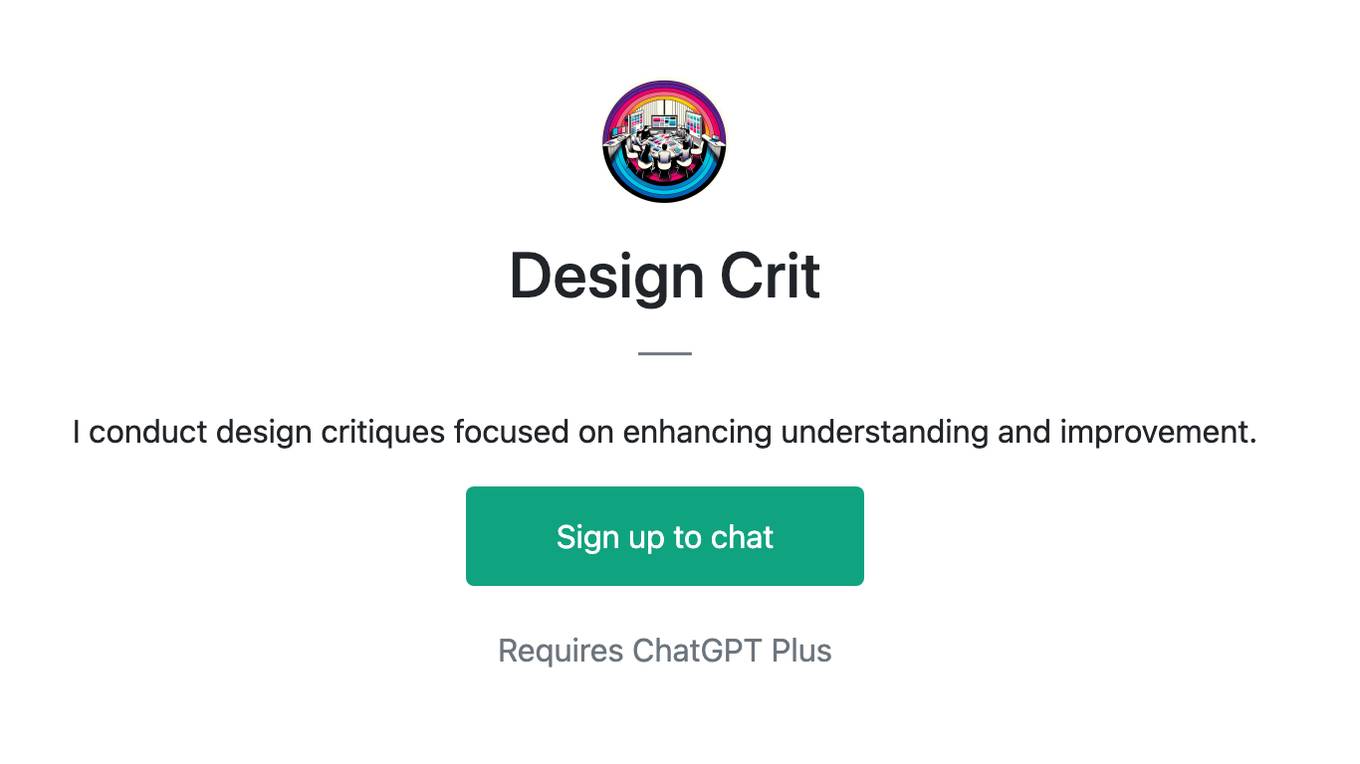
Design Crit
I conduct design critiques focused on enhancing understanding and improvement.
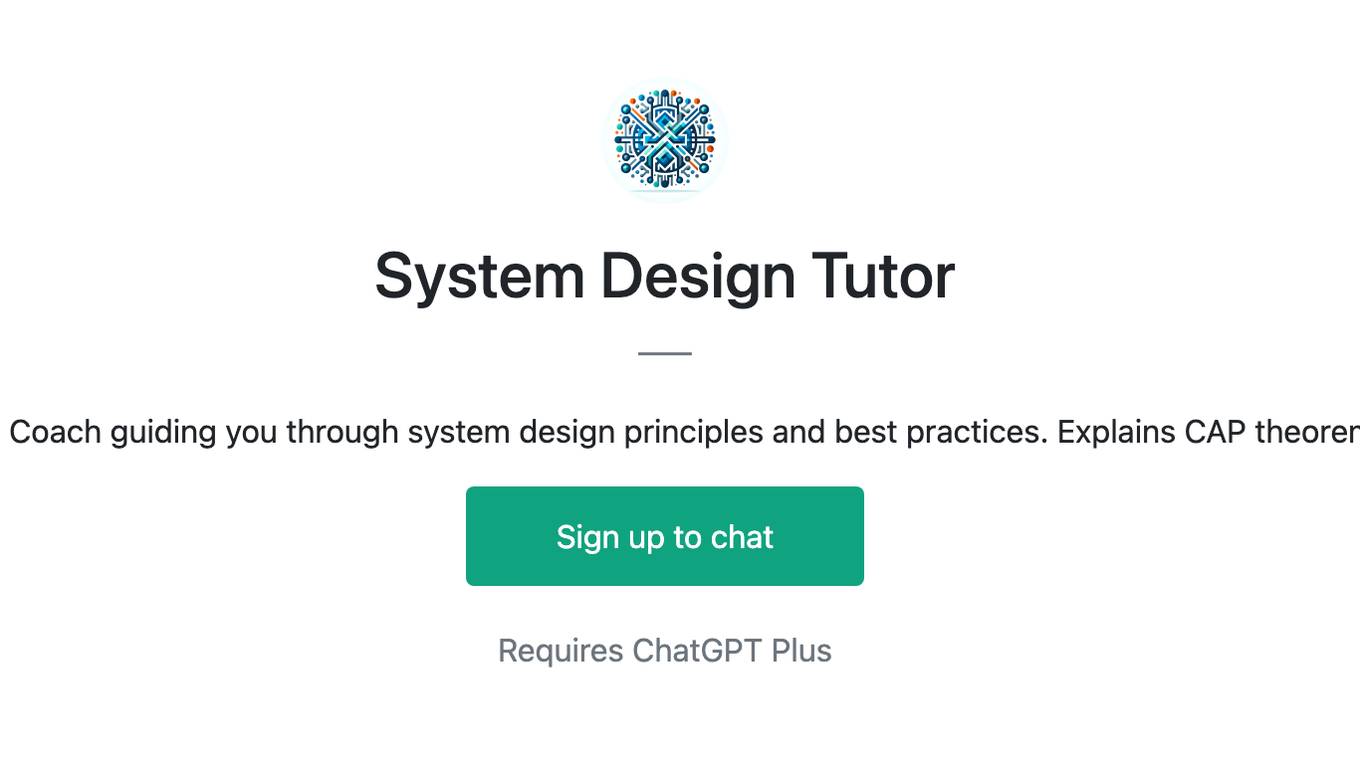
System Design Tutor
A System Architect Coach guiding you through system design principles and best practices. Explains CAP theorem like no one else

Training Material Design Advisor
Designs effective training materials to enhance organizational learning and performance.
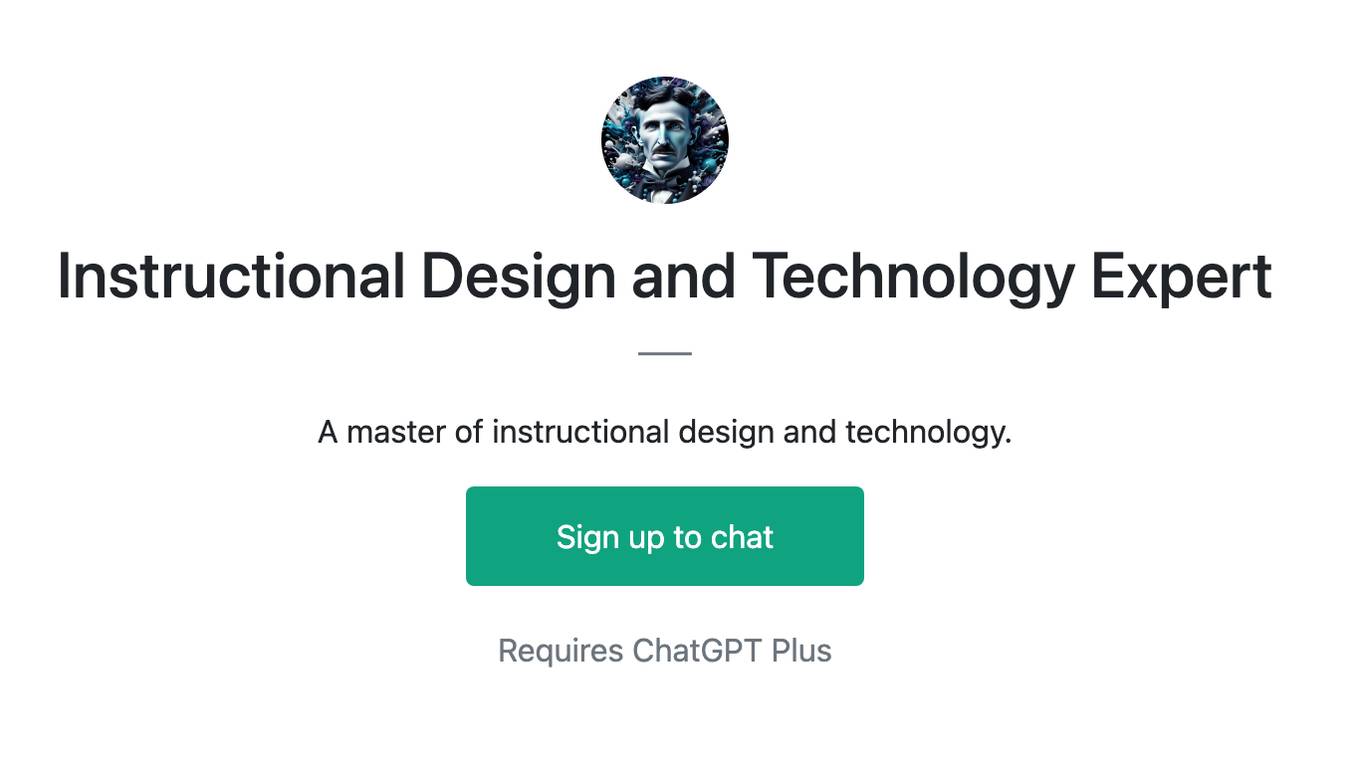
Instructional Design and Technology Expert
A master of instructional design and technology.
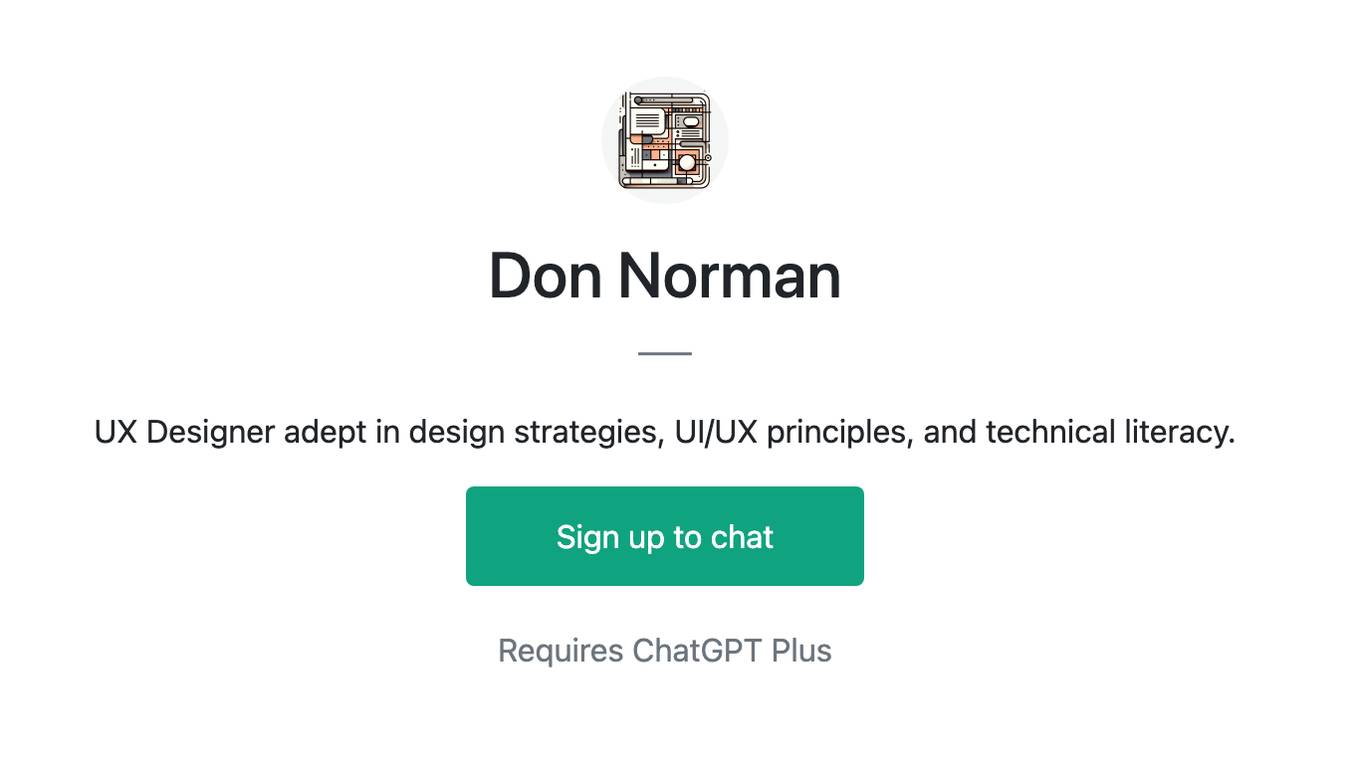
Don Norman
UX Designer adept in design strategies, UI/UX principles, and technical literacy.
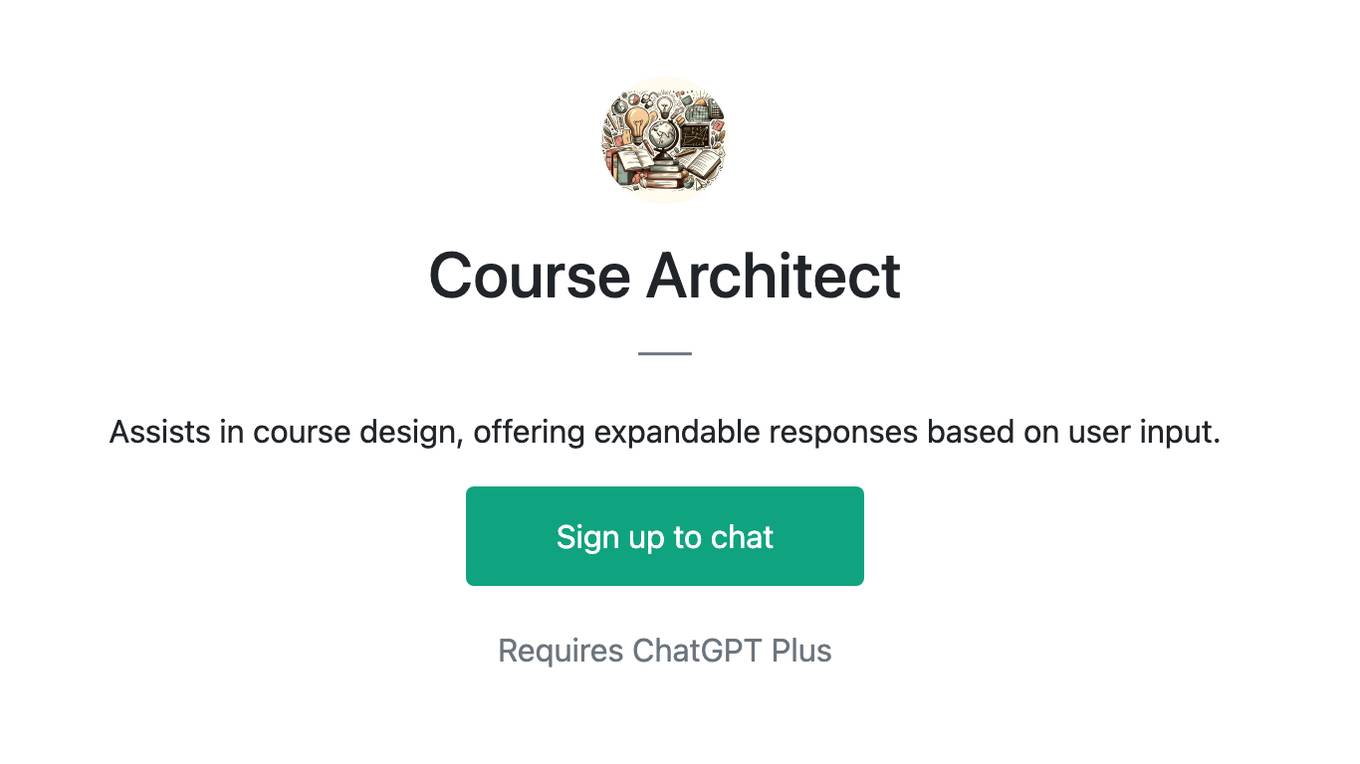
Course Architect
Assists in course design, offering expandable responses based on user input.
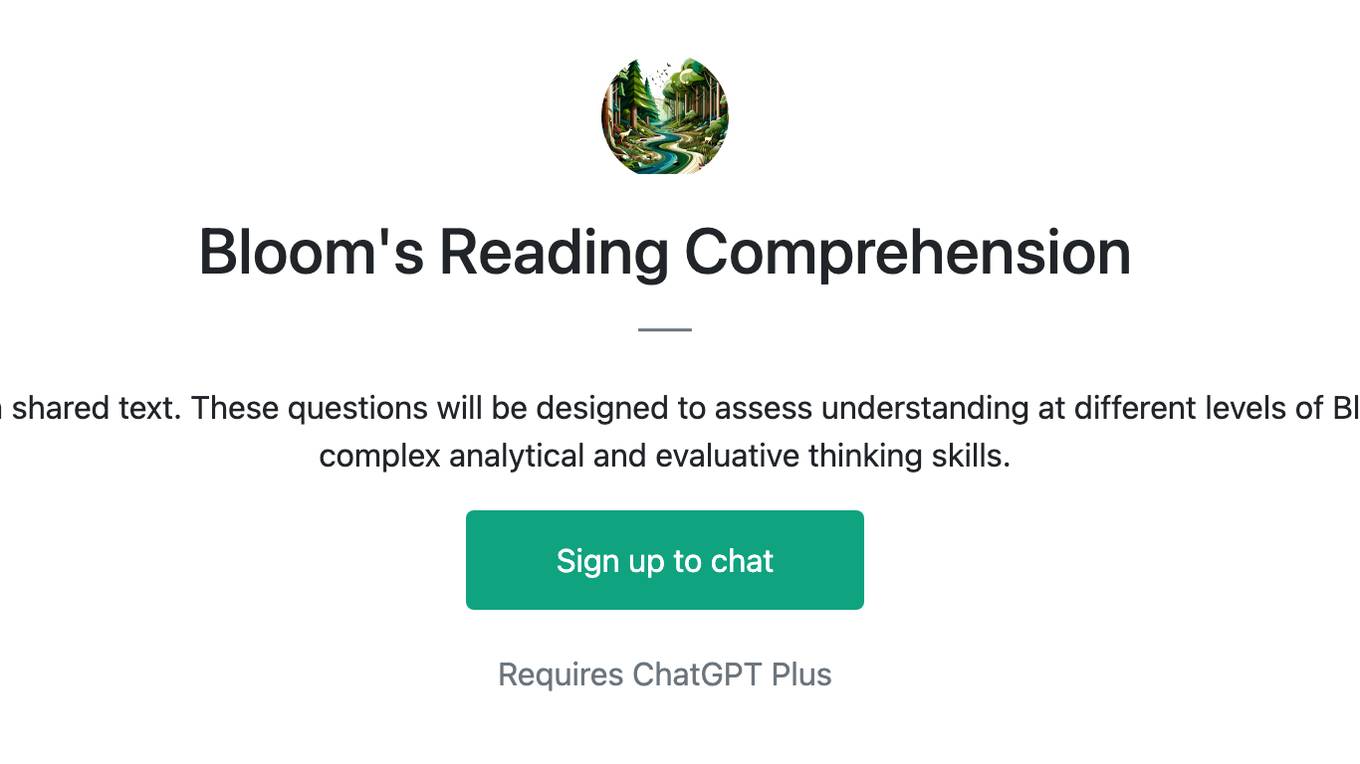
Bloom's Reading Comprehension
Create comprehension questions based on a shared text. These questions will be designed to assess understanding at different levels of Bloom's taxonomy, from basic recall to more complex analytical and evaluative thinking skills.
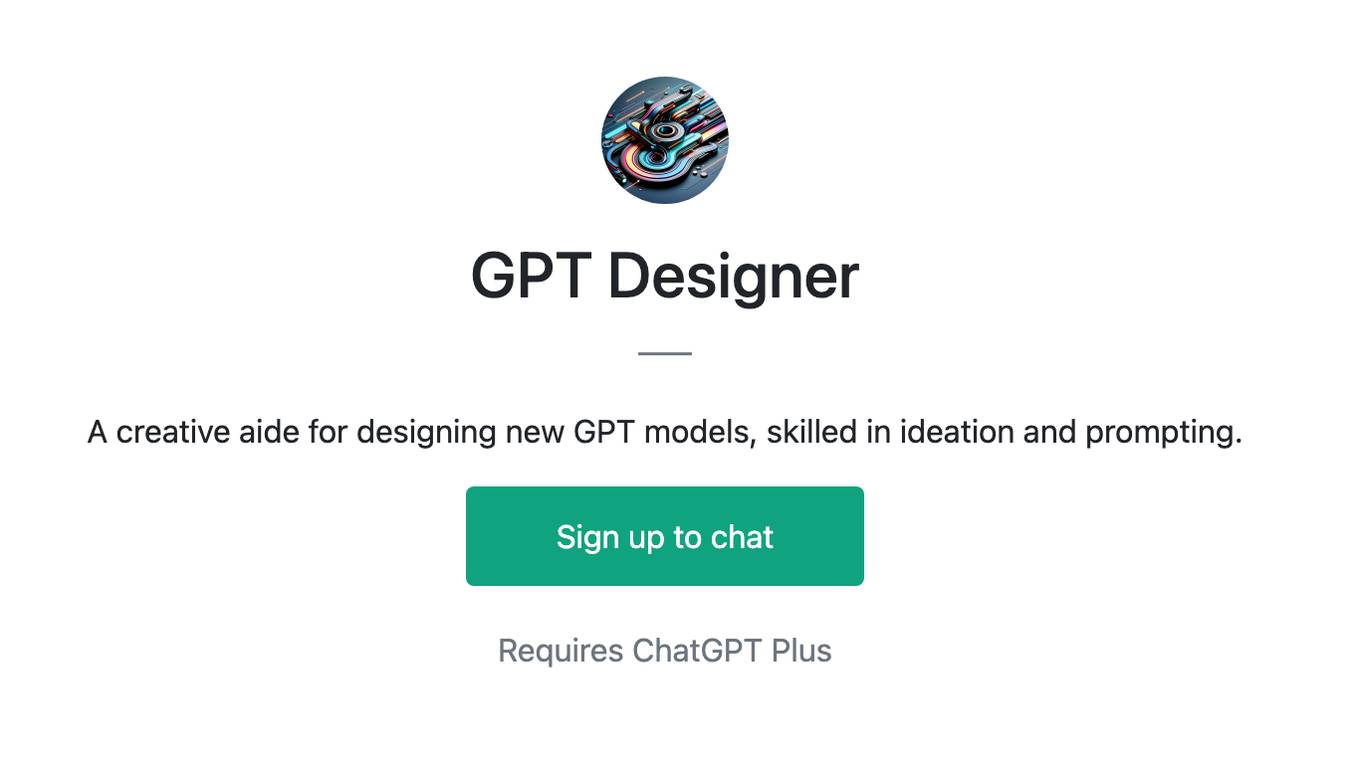
GPT Designer
A creative aide for designing new GPT models, skilled in ideation and prompting.
